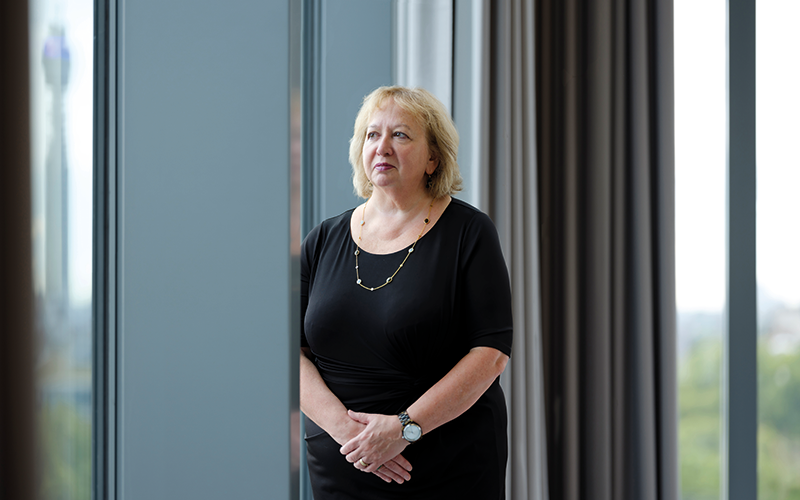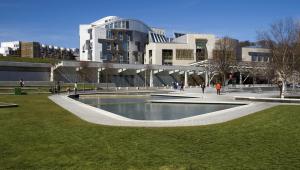
Christina McAnea
In an exclusive interview with PF, Unison’s general secretary Christina McAnea called on the government to end the hostile environment with public sector workers and negotiate pay deals that can help members deal with the cost-of-living crisis.
She said: “If you really want to tackle some of the problems we’ve got in our industries, ministers have got to step up to the plate. They will intervene when it suits them so why not make it in a constructive way?”
As Unison members who work in the NHS begin taking part in one of the biggest ballots for strike action in decades, McAnea said it’s not out of choice but because wages have been repressed during the austerity era, and workers cannot accept the offers now being made by employers.
She told PF: “It’s on the back of 12 years of pay freezes or below-inflation pay increases. It’s not as though it’s the first time we’ve been here – but it is the worst it’s been in years.”
Unison’s leader added public opinion is with striking workers including rail staff who have been locked in a battle with the government for months.
McAnea said: “I think the RMT and CWU [Communication Workers Union] have done a great job. We’ll be in the same place if we get to that point of taking industrial action. And I think we’d get even more public support. People aren’t asking for outrageous amounts of money.”
She added the current offers being made by the public sector employers were an insult to staff who had got their communities through the Covid-19 lockdowns.
“It became very clear, very quickly in lockdown who were the important people: the nurses, the refuse collectors, the people who kept the lights on. Then, all of a sudden, the government say they’re the ones who need to practice pay restraint. It feels like a slap in the face to quite a lot of them,” she told PF.
“We’ve got nurses, librarians and teaching assistants going to food banks – we’ve got a hospital that’s set one up for its staff. People can’t afford to feed their families. If I’d have said this would happen 10 years ago no-one would have believed me. That’s now a reality.”
In the interview, which took place before Liz Truss resigned as PM, she claimed the government’s confrontational stance is based on an out-dated view of unions.
“The government like to portray us as union barons. They think we all live in a dark room organising strikes. What they forget is that it’s working people who are taking strike action. We’ve got the toughest employment legislation in the world. It’s not like France, it’s not like the old days,” she said.
She also warned the impact of low pay deals will be felt by small businesses in areas that rely on public sector workers because their organisations are the main employers.
She said: “Public sector workers spend their money in their communities. It’s not just their livelihoods. It’s the local sports centre, the cafes and pubs. What happens when you take that away?”
While new chancellor Jeremy Hunt works on a new budget and spending review, McAnea and her team will be lobbying the government to consider Unison’s budget proposals which set out tax changes she claims would cover the cost of public sector pay settlements.
She told PF: “There’s always a way to do things. I can give them hard evidence.”
The union leader also claimed Conservative council leaders are alarmed about whether social care services will survive due to cost pressures and staff shortages.
She said: “They’re worried more and more care contracts will be given back and they don’t have the money or people. We’re in an almost perfect storm. We’re being told there’s no money and we’re greedy at the same time as services are collapsing.”
Ministers have raised the idea of using temporary staff to break strike action.
McAnea argued the idea is neither feasible not safe: “How would you feel as a train passenger with somebody who’s had a two-week training course driving your train? And you’re paying out huge amounts of money – that’s surely not the point?”
And what if the government wants a confrontation?
McAnea wants the message out that she’s talking to other union leaders: “We’re coordinating.”
One of the issues that lead to the demise of the Truss government was its focus on ‘trickle-down’ economics. McAnea claimed it is a failed theory and called for ministers to move on.
She said: “Poverty is a choice made by the powerful. Governments have the power to make decisions. They choose where they put their money. We have a government that’s hooked on a very divisive form of economics.
“You’re relying on the good nature of wealthy people who are squirrelling their money away on stocks and shares or second homes. It’s a myth.”
Image credit/Peter Searle











